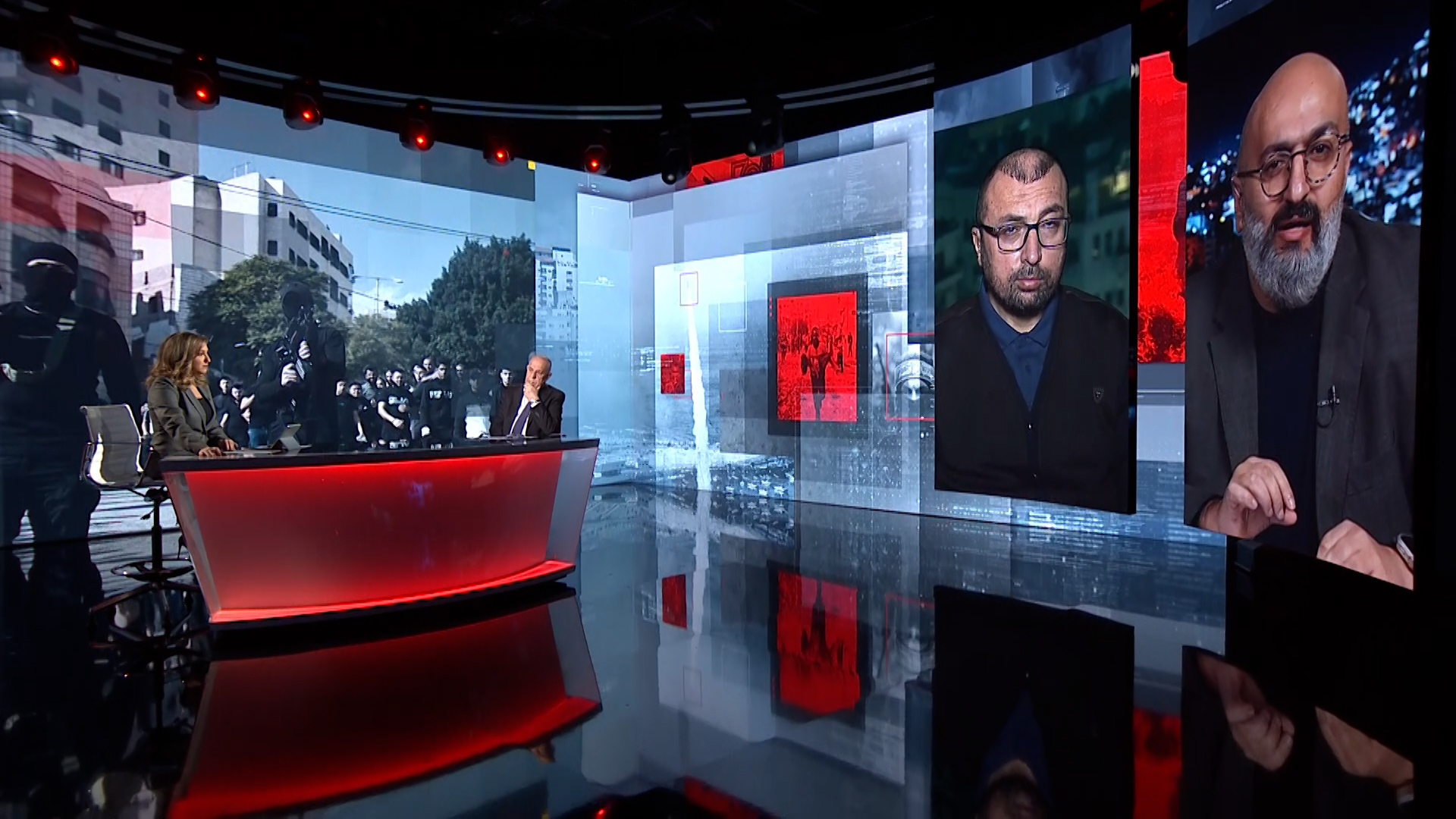play videoplay video
Video duration: 29 minutes 32 seconds 29:32
Analysts and experts agreed that the commando operation near the “Maale Adumim” settlement, east of occupied Jerusalem, was not surprising, especially after a warning from Israeli security services. They agreed that Israel’s efforts to separate Gaza, the West Bank, and Jerusalem had failed.
Writer and political analyst Sari Orabi says that all the hard and soft tools that Israel used to neutralize the Palestinians failed despite the high security situation imposed for more than 4 months.
Orabi added - during his talk on the program “Gaza... What Next?” - that the state of resistance that was escalating before the flood of Al-Aqsa still exists, despite the arrest of 7,000 Palestinians and 400 martyrs since the seventh of last October, in addition to the escalating state of settlement exposure to Palestinian lives and the burning and destruction of their property.
He points out that these aggressive Israeli practices create a Palestinian challenge and constitute a revolutionary factor, expecting that the Jerusalem operation will spark a discussion within the Israeli security establishment about the entry of Palestinian workers into the occupied interior, and the arrival of worshipers to Al-Aqsa Mosque during the month of Ramadan.
He points out that Israeli Minister of National Security Itamar Ben Gvir believes that the arrival of the Palestinians to Al-Aqsa and the organization of demonstrations there means that the war in Gaza has failed, expecting that the Jerusalem operation will push the Israeli authorities to use more force.
"Third Intifada"
In turn, the military and strategic expert, Major General Fayez Al-Duwairi, said that “lone wolves” may have carried out the operation despite the blessing of the resistance factions, stressing that Israel cannot achieve absolute security and it is foolish not to expect operations to be carried out.
He added that Israeli security services warned of escalation, and it may be a prelude to what might happen during the month of Ramadan, especially with Ben Gvir’s denial of the Palestinians’ right to exist and Israeli Finance Minister Bezalel Smotrich’s demand for more settlements.
There may be a third intifada - according to Al-Duwairi - after the first Palestinian intifada, which was known as the “Intifada of Stones” and the second intifada, which was known as the “Intifada of Bombings.”
'More difficult days'
For his part, Ihab Jabareen, a writer specializing in Israeli affairs, explains that Israel has been trying to restore its prestige since October 7, but every time its military institution and civil society fail to achieve this.
Jabareen asserts that Israeli Prime Minister Benjamin Netanyahu wants an image of victory on the political stage, referring to the continuation of the war because he feeds on it. “What happens inside the Gaza Strip stays there, while the Palestinians say that what happens inside the Gaza Strip will not stay inside it.”
He points out that Netanyahu is the only one who is regaining his prestige, even though he has plunged Israel into a leadership crisis for years, as Tel Aviv is moving towards the extreme ideological right and the strategic security right, both of which reinforce Israeli superiority.
He concluded that the coming days will be more difficult, “as reality confirms that there is no security or security,” after preferring the options of Ben Gvir and Smotrich regarding the security aspect.
Source: Al Jazeera

